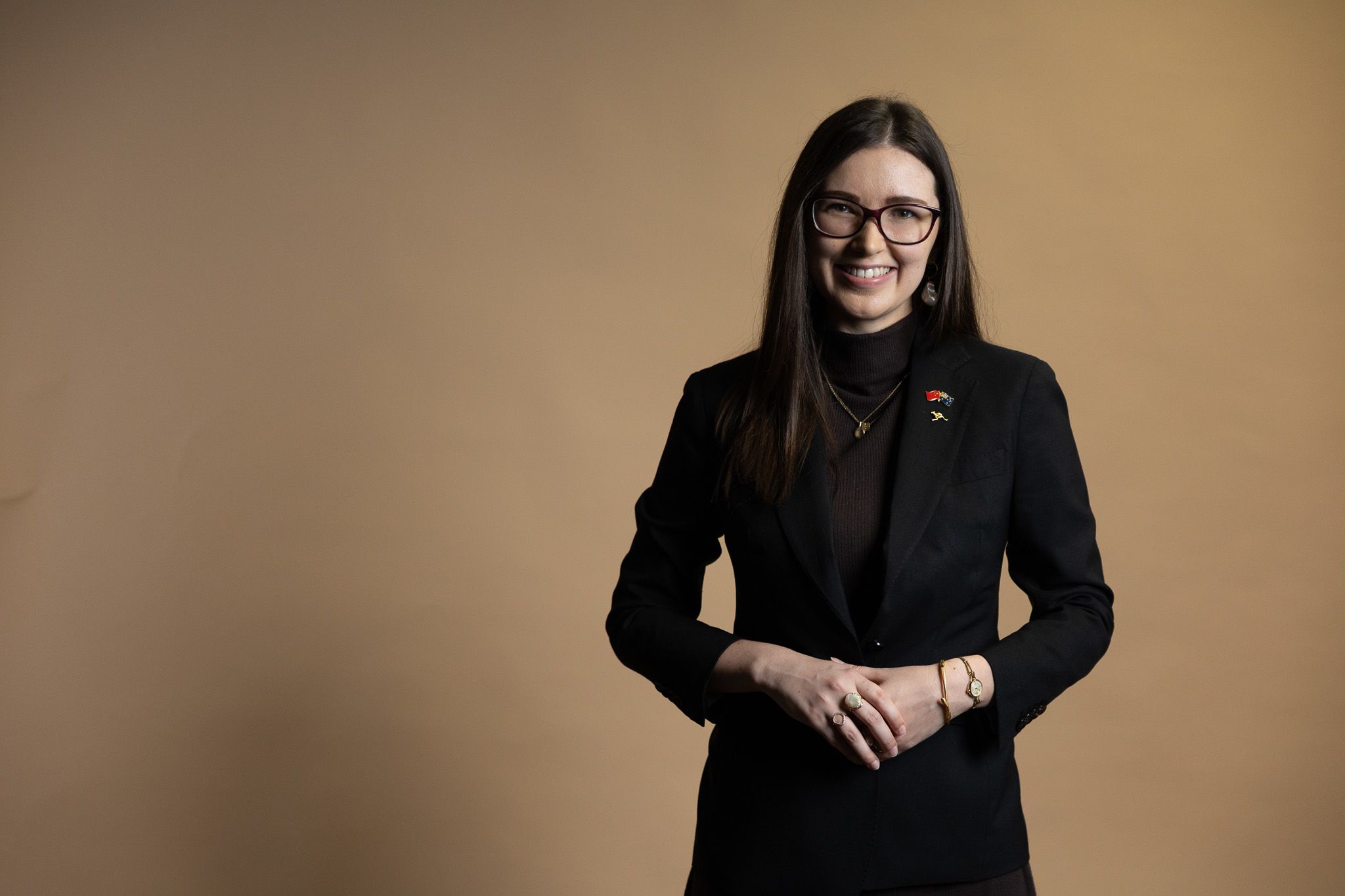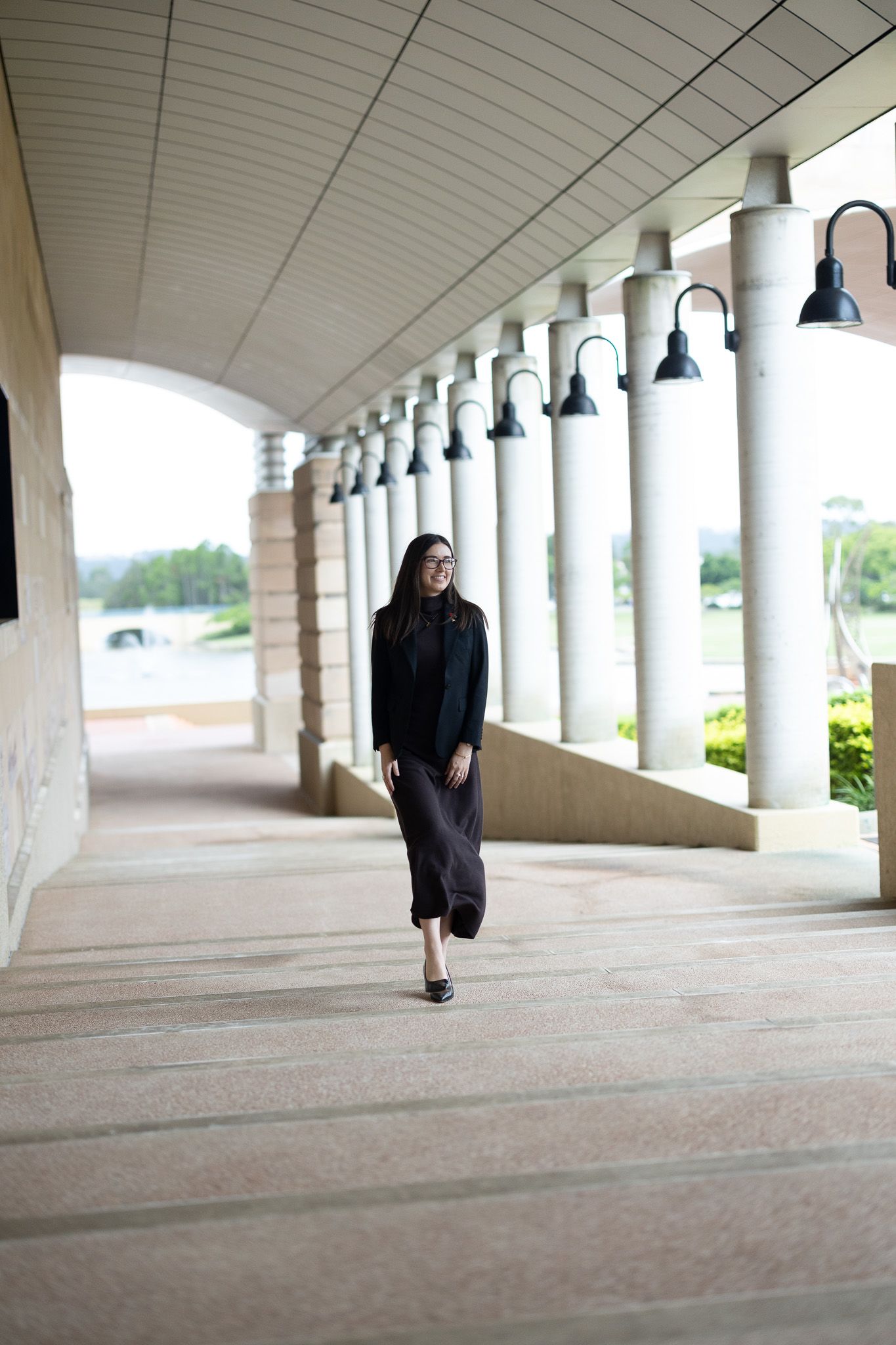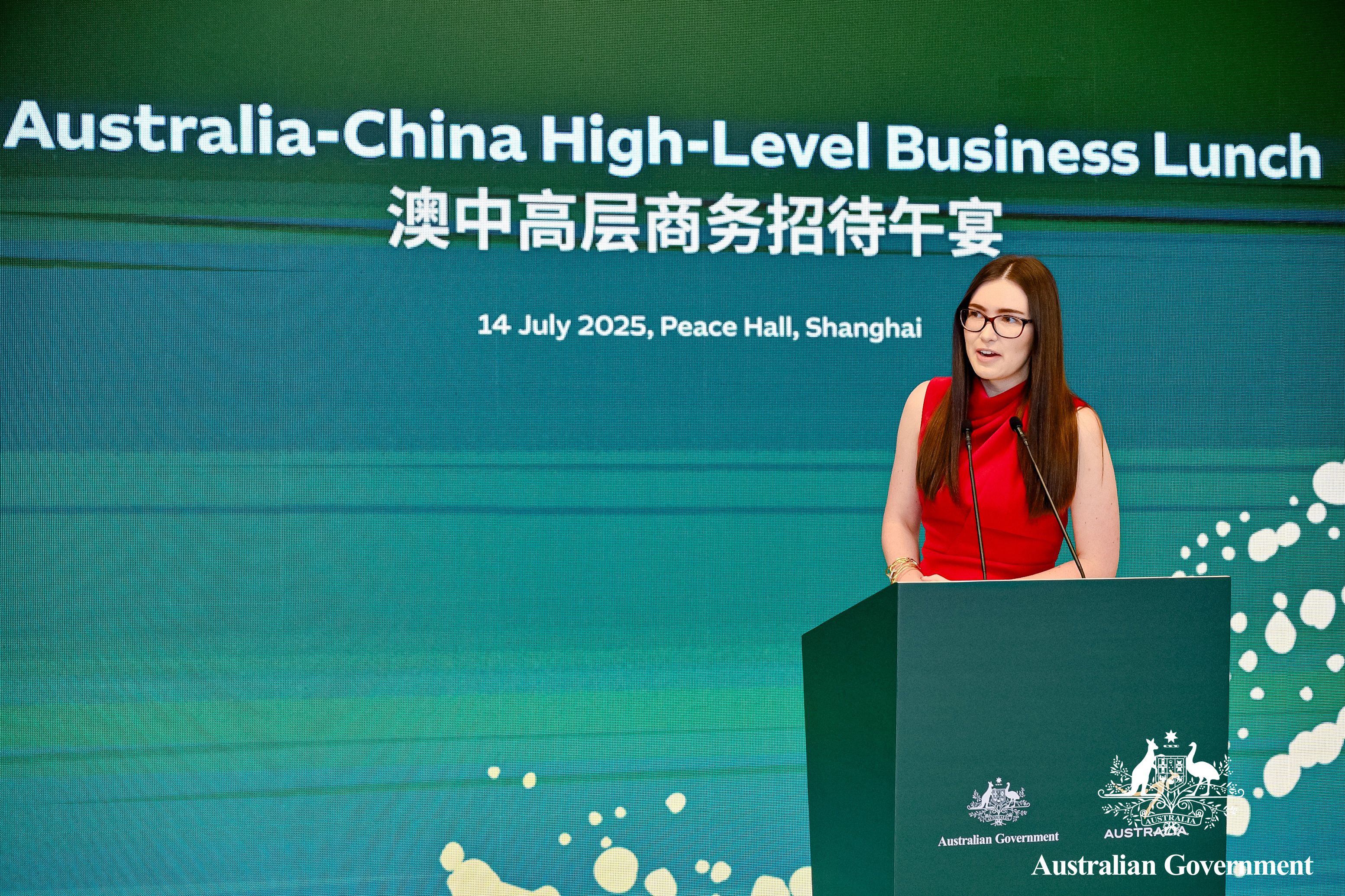

Stephanie Smith was a student at Bond University when she first imagined a career in international diplomacy. Today, she’s living out her ambition as an Australian Trade and Investment Commissioner for Mainland China, Hong Kong and Taiwan, based in Shanghai.
Stephanie was studying a double degree in law and international relations and planning a semester abroad when she first considered China as a destination of choice. As Australia’s largest trading partner, it was an easy decision to make. “I thought there’d be plenty to learn and opportunities to work in this space,” Stephanie says.
She was right. Stephanie studied at Fudan University in Shanghai for a semester and completed internships at King & Wood Mallesons and the Australian Chamber of Commerce. The semester on exchange was the first time Stephanie encountered Austrade — after seeing first-hand the engaging and meaningful work that Austrade was undertaking in the market, she formed a career ambition to become a commercial diplomat.
Climbing the ladder
After graduating from Bond, Stephanie worked as a legal officer and analyst with Queensland Treasury and was admitted to the Supreme Court of Queensland as a lawyer, before moving to China to take up a position at the Australian Chamber of Commerce in Shanghai.
She led the marketing and partnership divisions and was company secretary to the board before returning to Australia to work with Austrade.
Four years later, Stephanie was just 28, and pregnant with her son, when she was appointed to the role that had been a long-held ambition: Trade and Investment Commissioner for Mainland China, Hong Kong and Taiwan.
"It was the most humbling moment in my leadership journey so far,” Stephanie says.
“This was a goal I had had for over ten years. And it showed me that the people I was working with would support me in my desire to start a family and progress my career.”
Learning to lead
Stephanie’s rise to the Trade and Investment Commissioner role meant she was managing the largest team of her career and holding the most responsibility, while typically being the youngest in the room.
"When I first started managing a team, I was 23,” Stephanie says.
“My understanding of leadership and management and work was ticking things off to-do lists. I was in project management mode and focused on getting results. Because of this, my team didn't receive the empathy and the emotional support or intelligence from me they needed. I've had to work on developing interpersonal relationships with team members and understand who they are, what motivates them, and why they are at work.
“Everybody is going to make mistakes as they start to become leaders and manage people. That's totally normal.
"But what makes a great leader is when you're able to see the areas you need to work on, and be flexible and confident enough to adapt to your leadership style as you go.”
Stephanie’s commitment to growing as a leader didn’t go unnoticed. In 2024, she was named 2024 Young Leader by the Australian Financial Review’s Women in Leadership Awards and was a keynote speaker at the UN Women in Leadership Public Sector Conference in Canberra, an accomplishment Stephanie describes as a career highlight and a defining moment in her growth as a leader.
“Through this process I spent a lot of time reflecting on the strategies I use to lead,” Stephanie says.
"I think all of us inherently have strengths and natural advantages, and anybody can be a leader. Being a leader is about understanding who you are and capitalising on the strengths you can offer to others.”

Stephanie's three types of strengths for leaders
1. Identify and capitalise on your personal strengths.
“For me, they are working at speed, being organised and collaborating,” Stephanie says. "One thing I do with young people is ask them to reach out to their closest family and friends and ask what they think their strengths are. I’ve found people are often surprised with what they're putting out into the world.”
2. Identify and capitalise on the strengths of other people.
“Leadership is also about understanding what you're not good at and then building a team around you so that you have people with lots of different skill sets and strengths. That’s what makes a high performing, powerful team.”
3. Identify and capitalise on the strengths in your environment.
“That could be the organisation’s strengths, the sector, or the global market,” Stephanie says.
Talking trade
As Trade and Investment Commissioner, Stephanie guides the strategy development in her region and leads her team to engage with Australian businesses and international partners on a day-to-day basis, as well as promoting Australian capability, businesses and investments to organisations in China.
Stephanie is passionate about the role of Austrade in China and the mutual benefits of strong partnerships.
“One in four jobs in Australia are linked to trade,” she says.
“And these jobs pay 43% higher on average than non-export jobs. My work at Austrade directly supports export businesses who provide secure, high paying jobs for Australians in regional and urban areas. As a small nation, our trade and investment links are fundamental to Australia's strong economy.
“By helping Australian businesses capitalise on emerging opportunities, our communities benefit from higher productivity, more economic growth and a stronger labour market.”
A recent achievement for Austrade's China team was helping rebuild commercial links between Australian businesses and Chinese customers in sectors impacted by trade impediments, including lobster and wine.
“Later this year we'll host an Australian Pavilion at the China International Fair for Trade in Services and showcase Australia’s capability across net zero services,” she says.
“Australia has a lot to offer, especially in sustainable architecture and design, green financing, the circular economy and education.”
Stephanie speaks at the Prime Minister's Business Lunch in Shanghai.
Stephanie speaks at the Prime Minister's Business Lunch in Shanghai.
Guiding the next generation of leaders
Beyond trade, Stephanie is passionate about supporting women in leadership and playing her part in creating a more diverse and inclusive world. She is a member of the Australian Football League (AFL) Asia Advisory Board, with a clear priority to increase diversity in all aspects of the organisation.
“Last year we welcomed women's teams from Thailand, Cambodia, Indonesia and China to compete at the Asia Cup,” Stephanie says. “This was the first time China had sent a women's team to compete at the international level. It's a great sign for the growth and inclusiveness of Aussie rules footy in Asia.”
Stephanie also regularly returns to the Gold Coast to meet Bond international relations students and share her experiences and insights as an International Political Economy guest lecturer.
"I teach students about free trade agreement utilisation, but I also share practical advice and possible career paths for students aiming for a career in diplomacy or international business,” she says.
Stephanie often receives messages from Bond students who say her support helped them secure a job after graduation. Her advice to students is clear: if you want an international career, study abroad while you’re at university.
"The global perspective Bond provided me has set me up for my career and my understanding of my place in the world,” Stephanie says.
“Meet as many people as you can, do internships and build skills that support your career aspirations. The opportunities will follow.”
She understands firsthand how valuable those networks can be. "All the friends I studied with at Bond are now doing amazing things,” Stephanie says. “They're living all over the world. It's truly a reflection on the type of person that Bond attracts: young, ambitious, high performing and really wanting to make a difference.
"I’ve had many generous people help me along the way in my career and, like them, I hope to pay forward their guidance to the next generation of leaders.
“The more we can all help build each other up, the better.”
Published on Wednesday, 27 August, 2025.
Original thinking direct to your inbox

Stories from Bond


